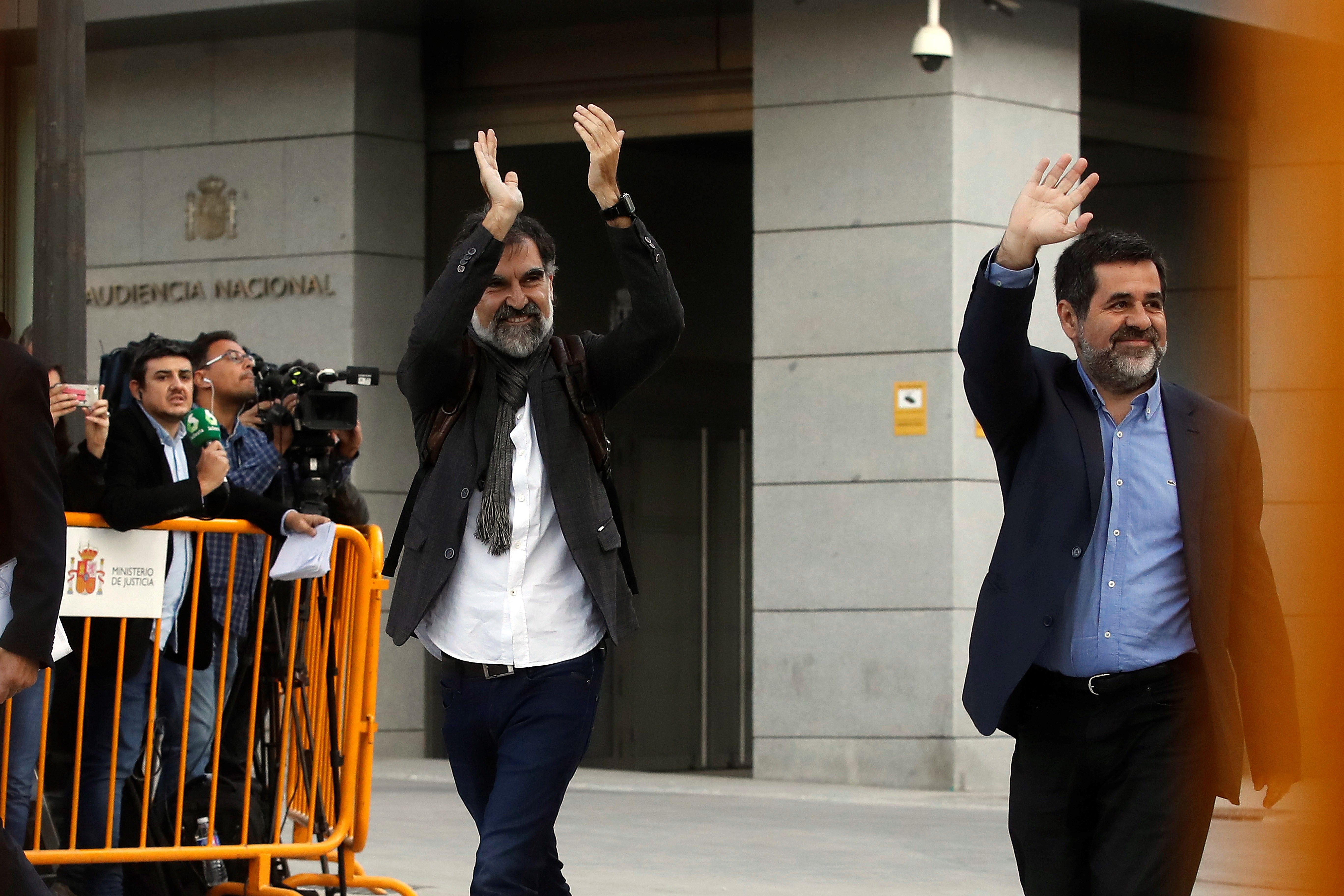Decision taken by the prisoner supervision board at Lledoners jail: Jordi Sànchez and Jordi Cuixart have been granted permission to leave the penitentiary during the day. From morning till evening on weekdays, on an ongoing basis. The two Catalan pro-independence activists, both serving nine year sentences for sedition for their role in the events surrounding the 2017 independence referendum, will only have to return to Lledoners prison in central Catalonia at night.
Specifically, Jordi Sànchez has permission to leave three days a week, for 11 hours a day, to do volunteer work. Jordi Cuixart will walk out of the gates five days a week, for nine and half hours a day, to work at his company specializing in the design and production of machinery for industrial packaging, of which he has always continued to play a senior manager role. "He will now be able to carry out these tasks from the company's own offices, and not just from prison as he had done since October 16th, 2017," said the Òmnium Cultural group - of which Cuixart is also president.
The departure from prison of the two is imminent and could be tomorrow or Monday, but justice authorities will not give information on dates or the destination entities for privacy reasons.
How has this come about?
On December 11th, when the prisoner supervision board decreed a standard prison regime for the two activists, there was, already on the table, the possibility of applying a provision, under article 100.2 of the prison regulations, which permits prisoners to leave the prison in cases where they find work or to care for relatives.
To apply this provision, the only time requisite is for two months to go by from the time when their prison regime has been set. That deadline has just passed. The application of article 100.2 is subject to subsequent appeal by the public prosecutors but it cannot be initially prevented. It is a basic right provided by the Catalan prison regime, based on the reinsertion of inmates into society rather than a punishment-centred policy.
This measure is also an alternative that others of the nine Catalan political prisoners will pursue. Former Catalan interior minister Joaquim Forn has filed an application to leave prison daily to go to work.
Cuixart and Sànchez have served a quarter of their sentences, more than two years in prison, and each of them has been granted one 48-hour leave. The new permission will allow them to leave the prison every weekday, to work and to be with their families.
The path to release
The Jordis have been in jail since October 2017. Sànchez, then president of the Catalan National Assembly (ANC) and Cuixart, head of Òmnium Cultural, were remanded to pre-trial prison, accused of sedition and rebellion in relation to a pro-independence demonstration on 20th September, in the build-up to the referendum.
A total of nine pro-independence leaders - Sànchez, Cuixart and seven pro-independence politicians - were sentenced to 9-13 year jail terms on 14th October last year. At that point their defence teams activated a whole series of judicial mechanisms. From appeals to annul their sentence, through to requests for prison leave.
On December 11th, it was decided that all nine pro-independence prisoners were to serve a standard "second level" prison regime. It was a disappointment to many. They had hoped for the open "third level" that would have required them only to spend nights at the prison. But it was known that the article 100.2 application could be open to them if they found a job - one not linked to the civil service or politics.
Other figures in the political sphere have already benefitted from this type of prison board decision in the Spanish state. This is the case, for example, of Jordi Pujol Junior, son of the former Catalan president, and Iñaki Urdangarín, brother-in-law of Spanish king Felipe VI.
With the granting of this open regime to Cuixart and Sànchez, the door is opened for the other pro-independence prisoners, who will gradually begin to request such measures when they have served a quarter of their sentence - or alternatively, because they have a job.

